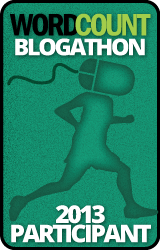Communication Careers Corner: How much attention has the Casey Anthony case received as far as online and traditional media coverage was concerned, in your opinion?
Barry Hollander: The case received an enormous amount of attention as trials go, in large part thanks to three years of buildup, especially by the Nancy Graces of the world. The mainstream TV networks spent a lot of time on the trial because drama sells. Newspapers and traditional online news sites spent less time, which is typical. But for Headline News and Nancy Grace, this case proves that good journalism and good television are not necessarily the same thing.
The 3C's: What about social media? How and where did most, if not all, people, learn of the verdict?
BH: A lot of people learned about the verdict via Twitter. That's how I learned of it. Most people could not sit at their television sets waiting for the jury to make a decision, and frankly most people thought it would take longer than it did for the jury to reach a decision. That's especially true for those who predicted a guilty verdict. But most people are not on Twitter, so in terms of sheer numbers it'll probably come down to learning via online in some other way or by word of mouth and then going to the TV to verify the news. What's interesting is how people used Twitter and other social media like Facebook to vent after the verdict. A number of mainstream news organizations also encouraged people to comment. For a lot of folks, some people picked up on it via Twitter or other online sites or TV news, emailed or texted friends, and that sent people scurrying to CNN or ABC News or online to various sites.
3C's: As a veteran journalist, how would you have covered a trial like this?
BH: Journalists for the most part covered the trial more or less as I would. Let's set aside Nancy Grace, who is a little bit nuts. Tot mom? What the hell's that about? And do we have to put "little" in front of the victim's name? No real journalist does that. I've covered a few trials in which a child died and it's never easy. But a number of news organizations such as HLN decided that taking sides makes for better ratings. and they sold their journalistic soul in how they handled the case. Covering trials, even big trials, is usually dull. There are few surprises. Every little "surprise" in this case got blown far out of proportion by not just HLN but also CNN and the rest.
The reporters did a lousy job of, in advance, telling why it was possible she would be found not guilty. By failing to do so, people were so stunned that the only result could be anger -- especially when that kind of anger is fed by various TV talking heads.
3C's: After the trial ended, attorneys for Casey Anthony blasted the extensive media coverage of it. What are your thoughts on that?
BH: I halfway agree with them here. The trial, objectively, did not deserve the amount of coverage it received. On TV, though, whatever drives ratings makes it more newsworthy. TV ran with this story early on, saw that it clicked somehow with people, and that fed a viscous circle of growing interest, so more time on air, so more interest. And anger. Let's not forget anger. Some of the TV talking heads spent most of their time feeding anger about the case instead of covering the story. Plus I don't want to even get into some of the half-assed "experts" HLN often put on to discuss the case. Shoddy shoddy journalism, all around. Most newspapers and serious news organizations covered it more or less the way it deserved.
3C's: Do you have any final comments/thoughts?
BH: This is one of those rare cases that had a little bit of everything, so much of the coverage comes from the unusual nature of the story -- a mom accused of killing her child. That last big story I covered as a reporter was that kind of situation. It has sexual molestation, it had torture, and it had a mother accused of murdering her 18-month-old daughter. But we handled it with a sense of proportion, of keeping in mind that you can't obsess on a single story.

























